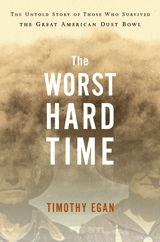THE BEATLES: LET IT BE ... NAKED
Let It Be was the first rock album I really drowned in. In all likelihood, it was the first rock and roll album I ever played. This was somewhere in Massachusetts in the mid-1970s: finished basement with wood paneling; hi-fi with stackable spindle; cardboard speakers on rickety wood shelves; odd, sculpted driftwood owl on the wall; tight screen door leading to a backyard of a depth of around two feet, most of it slate. Limited as I was by my parents’ spotty record collection, I suppose it’s lucky I stumbled on to The Beatles at all. It was the only Beatles album down there, and, as I recall, the only relic that even smacked of ‘60s rock. Unless
Bridge Over Troubled Water counts (which it doesn’t). Odds were high that I’d light on a soundtrack:
Carousel, Hair, An American in Paris, Cabaret, Mary Poppins, Oliver!, Grease, Annie, Camelot—you’d think I was raised by some real troubadours. I have no memory of my folks ever listening to anything beyond AM radio. I find it hard to imagine them buying these records, and suspect that some kind of music club was involved. Or, in the case of the
Firestone/Julie Andrews Christmas carols, a gas station giveaway.
Anyway,
Let It Be, once found, was instantly in high rotation at my house. It might’ve been the only disc rotating. I fondly remember jumping around like I had springs on my feet, shouting along with my
best buddy. And I was blissfully unaware of the phenomenon known as The Beatles; as far as I was concerned,
Let It Be was the first and only album by this shaggy quartet. I was in that pure pre-media state now known only known to six-month-old babies and the Amish (and I wonder about
the latter), where even the Apple label (and half-apple on the flip) was a source of amazement.
So it was with a middling sense of anticipation that I picked up
Let It Be … Naked. Ill named and badly designed, it nevertheless promised a return to more innocent days. I thought it was simply the original album stripped of Phil Spector’s murderous over-production—strings, background chorus—returning the band’s sound to their roots, which was the reported point of the project to begin with: as in, "Get Back." But it turns out to be more (and less) than that. For one, the set list is different. Goodbye "Maggie Mae" (
tant pis) and "Dig It" (no biggie), hello "Don’t Let Me Down." The song order is different, too. "Get Back" is first, and "Let It Be" last, among other switches, which is mostly all to the good, although I miss the extra lead-in time between tracks on the LP. The tunes come fast and furious on the CD. And much of the studio chatter, including John’s sendoff, "I hope we pass the audition," was left off—also missed.
In a few unremarked upon cases, entirely different takes of songs are substituted for the ones I was weaned on, most notably "Let It Be," which here sounds strangely ponderous. (I’m looking at you, Ringo.) But overall, the slight changes in arrangements or solos—Billy Preston’s organ sounds much more prominent here—and the changes in running order have the startling effect of making something old and overly familiar sound suddenly new. The Beatles became more than a rock band so long ago it’s impossible to hear most of their back catalog as anything more than hermetically sealed sound capsules produced by a cultural phenomenon from another time. But by tweaking a note here and there, this record allows me to hear The Beatles as a band, to hear the music as it unspools in time and not as some preordained, received bundle of rock history, and that’s a gift.
My friend who discovered
Let It Be with me went on to become a Beatlemaniac-in-training. I’m pretty sure he made a set of dinner plates featuring magic-marker depictions of all four. I didn’t go that route—you could almost hear enough Beatles just walking around, and later I disdained them for being popular. And I’m thankful I didn’t, because while most crazy Beatle fans knew more about
Let It Be Naked before it even came out than I do now, it allowed me, for a second, to get back to the basement. And I'm still jumping.




